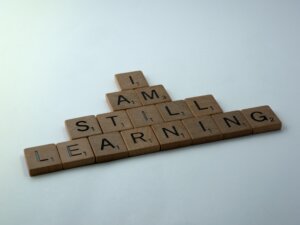I’m not talking about political views on education and training, but rather eye movement as it relates to learning. Believe it or not, Liberals see gaze cues much differently than Conservatives do.
As reported in Science Daily (Dec. 9, 2010) — “It goes without saying that conservatives and liberals don’t see the world in the same way. Now, research from the University of Nebraska-Lincoln suggests that is exactly, and quite literally, the case.”
What does this have to do with training and development? Read on.
In that UNL study, researchers measured a person’s tendency to shift attention in a direction consistent with another person’s eye movements, even if it’s irrelevant to their current task. Any surprise that there was a big differences between the two groups? It also reported that “Liberals responded strongly to the prompts, consistently moving their attention in the direction suggested to them by a face on a computer screen. Conservatives, on the other hand, did not.”
Why? It appeared participant values on personal autonomy might make them less likely to be influenced by others, and therefore less responsive to the visual prompts. To those conducting the study, they thought political “temperament” might moderate the magnitude, but didn’t expect the conservatives to be completely immune to the cues, while the liberals tended to follow the “gaze cues.”
So, what does this mean for the training world. There are one or more aspects to consider in analyzing our audience. Knowing the political inclinations can affect the willingness of the student or trainee to learn, or to even attend to what we say. It seems to indicated the liberals are more open, which means more of a sell to the conservatives especially on “what it means to me.”

Remember it is the obvious we usually look at. We don’t often think of the cognitive aspects. We know about impressions we make on an audience and vice versa. We can’t exactly go out and ask members our audience their political affiliations; I would suggest making such inquiries quite discreet, if necessary, or asked with a touch of humor. I doubt if it is absolutely necessary although if we make sure we put in enough connections of what the training or subject matter means to our participants we’ll have a positive training result regardless.
This brings to mind other cognitive differences or behavioral nuances that can be considered. Clothing stereotypes have been shown to determine that people may or may not be the “people” they portray through their clothes. Perception of others can often be based on clothing choices alone. I did two studies, one in undergrad psychology and one in graduate school where I showed individuals pictures of clothing and asked them to assign character traits–even political and religious affiliation. The results in both studies were conclusive that people do stereotype based on clothing alone.
Maybe we all watch too much television, but we know a “pimp” when we see one. Just kidding, but I think you get my point. How our audience perceives us based on our clothing relates to how they will listen to us. After all, they think they know something about us; hence, the necessity for conservative professional business attire when appropriate or something close to what our audience is wearing. We will be perceived as we appear. Bios can affect that perception, but you know what they about first impressions being the lasting ones. Of course, there is the obvious. Do our own political views affect our approach in training an audience of opposing views or similar views, and should it? It is perhaps just as important to acknowledge our personal differences if only to ourselves and be aware of who we are and how that may affect our training audience.

For me, knowing my audience is number one, knowing my subject, number two and knowing myself, last. Each of these aspects in communicating with an audience is essential. Without these elements, I think your training or speaking engagement can never be the best, most honest, or the most effective it can be.
For more on gazing: I wrote an article on it recently called the Power of Gazing in Training, Love and Other Matters that touched on the basics. Just so you know, the reviews expressed here are my own and you should feel free to disagree and express yourself. I love opposing views especially if you can provide more information on a subject. Also, if this topic or another is your particular expertise, we can always use guest writers. Check the link at the top for the form and fill it out for us. For more on Jack Shaw, see my website for more articles on training, communication and theatre.
—
For more resources about training, see the Training library.
Please check out my website. It’s not about acting at all or it is everything about acting, depending on how you look at it. I am happy to discuss any proposition. For a look at the human side of training from my Cave Man perspective, please check out my book, The Cave Man Guide to Training and Development. Happy training.
 Sections of this topic
Sections of this topic















